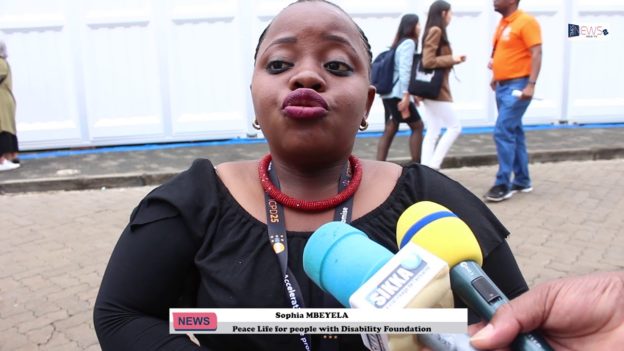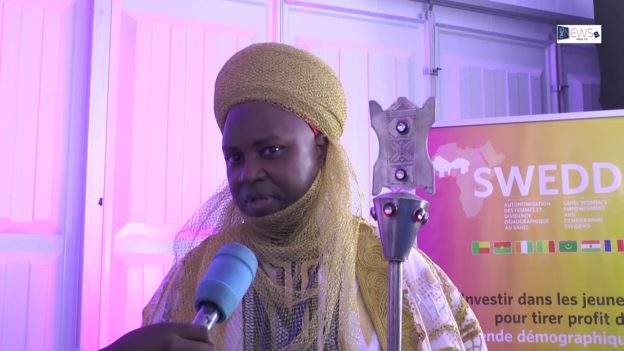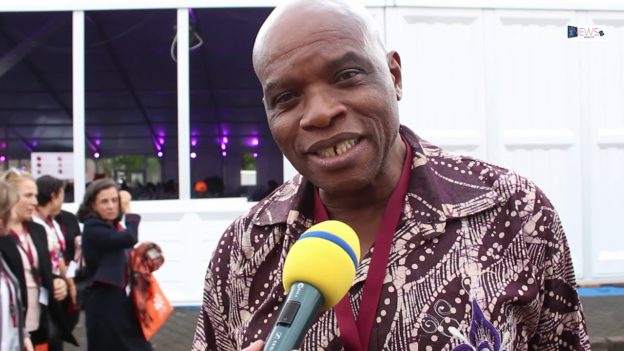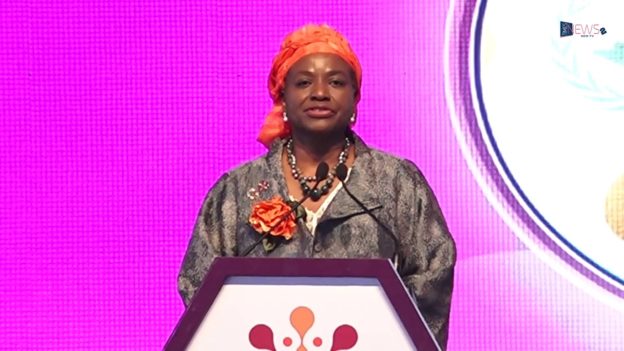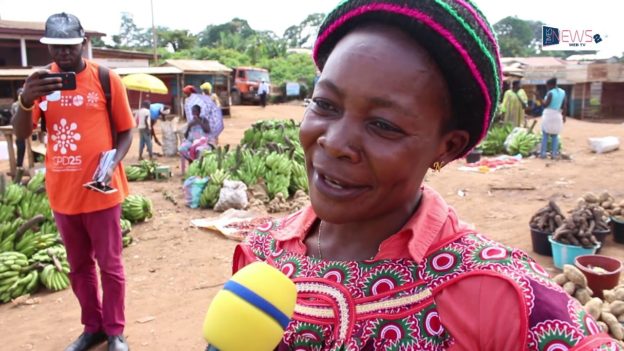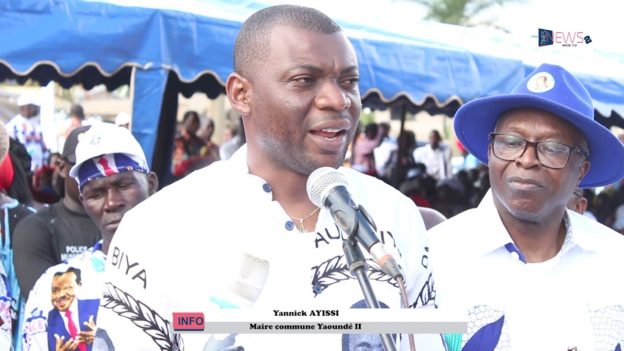
ICT University du Cameroun : Des Bourses Partielles au Bénéfice des Etudiants Francophones
L’administration de l’université des technologies de l’information et de la communication au Cameroun annonce une fois de plus aux étudiants francophones qu’elle est sous bourse partielle. C’est l’une des grandes annonces faite par l’administration de l’université des technologies de l’information et de la communication au Cameroun, plus connu comme l’ICT University of Cameroon. Cette université située au quartier Messassi à Yaoundé, capitale du Cameroun, a ouvert une section francophone pour des étudiants d’expression française avec des bourses partielles. Une bourse partielle qui est offerte à tout étudiant qui aspire développer ses compétences en technologie de l’information et de la communication. Les étudiants admis ne payeront pas la totalité de la scolarité. Alors que les inscriptions se poursuivent au campus de Messassi pour le semestre de printemps qui débute en Mars 2021, tous les étudiants détenteurs d’un Baccalauréat toutes filières confondues, ou encore ceux détenteurs du Brevet de Technicien Supérieur (BTS), et de Licences, souhaitant poursuivre leurs cursus scolaires sont éligibles aux admissions dans cette école de prestige et dont la renommée est connue sur le plan international. A titre d’information, les étudiants désireux de s’inscrire ont la possibilité de postuler suivant le lien : https://ictuniversity.org/application-form et plus d’informations au www.ictuniversity.edu.cm et via les contacts : +237 682 388 572/ 678 764 037. En rappel, l’ICT University du Cameroun suit un programme purement de type américain et ceci avec pour objectif de fournir des TIC de qualité et un développement des capacités humaines de gestion spécialement ciblée pour les pays d’Afrique, d’Amérique Latine, des Caraïbes et l’Asie. TimesNews2
Read More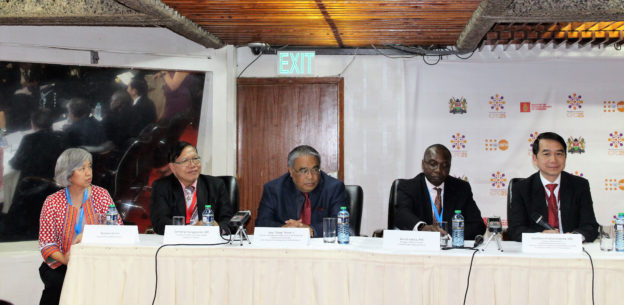
6th International Conference on Family Planning to be hosted by Thailand
Major highlights of this upcoming event were granted to the press and scientific experts during a conference on November 12, 2019 in Nairobi, Kenya. The international conference on Family Planning(ICFP) to be held in Pattya city, Thailand will take place from February 1-4, 2021. This was disclosed in a press conference that took place on November 12, 2019 in Nairobi, Kenya as part of side events of the international conference on population and development (ICPD25) summit. From explanations and discussions, focus will be laid more on the needs of women, the future of family planning among young people and adolescents, the use of social media and languages accessible to common people or communities to amplify sensitizations and the media to ease and lead communication on various expectations. Challenges and expectations were equally outlined during the one hour exchange. The sixth international conference on family planning to be co-hosted by the Bill and Melinda Gates institute for population and reproductive health, the kingdom of Thailand’s ministry of public health, the Royal Thai college of obstetricians and gynaecologists and the population and c ommunity development association, appears as a challenge for a country which has significantly brought down its population growth. The popularization of family planning as from the early 1970s in Thailand has helped to cut down the fertility rate from 6.1 to 1.5 percent according to reports. Contraceptive prevalence increased from 14.8 to 70.6 percent. Thailand therefore serves as an example for other low to middle-income countries about the great strides she has made so far in reproductive health. The press conference brought together on the panel, Samrerng Yaenggratoke, Vice Minister in the ministry of public health in Thailand ; Professor Benoit Kalasa, Director of the Technical Division in the United Nations Population Fund ; Jose “Oying” Rimon II, Director, in the Bill & Melinda Gates institute for population and reproductive Health, Johns Hopkins Bloomberg School of Public Health ; Professor Kamthorn Pruksananonda, Director of the Secretariat of the national steering committee of ICFP and by the way the Chairman of Reproductive Medicine Subcommittee, The Royal Thai College of Obstetricians & Gynaecologists and Mrs Wassana Im-em, Head of Office, UNFPA in Thailand. The ICFP is described as a strategic inflection point for the family planning and reproductive health community aorldaide. It provides an opportunity for political leaders, scientists, researchers, policy makers, advocates and youth to disseminate knowledge, celebrate successes and identify next steps towqrd reaching the goal of enabling an additional 120 million women to access voluntary, quality contraception by 2020 and beyond.
Read More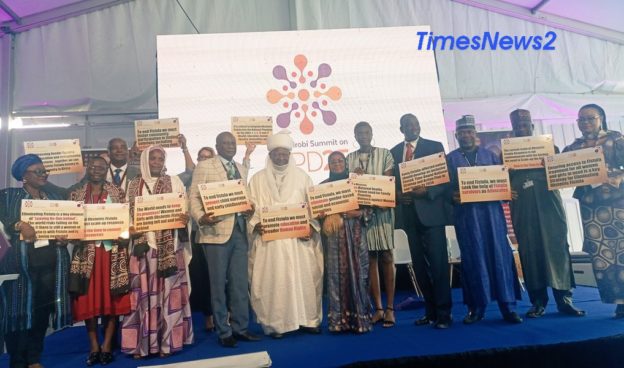
Ending Fistula to achieve the SDGs and ICPD Programme of Action
Zero Fistula : Nigeria and the West African region is the theme of a concurrent session that took place on November 13, 2019 at the Nairobi summit on ICPD25. The one hour and thirty minutes’ session that regrouped health experts, government officials, researchers, civil society organisations and media practitioners was aimed at placing obstetric fistula as a priority discussion point towards achieving the sustainable development goals(SDG) and the international conference on population and development(ICPD) programme of action. It was also an opportunity to make a case for renewed investments in prevention, treatment and reintegration of fistula survivors. The session convened by the center for population and reproductive health ; the international society of media in public health and fistula foundation Nigeria had the following key messages : The current scale of obstetric fistula response is not commensorate with the burden. We need to scale-up response. The times is Now. Countries and the international community must significantly step up efforts to ensure that every new case of fistula is prevented and every woman or girl suffering from fistula is treated and receives the follow-up, social reintegration and rehabilitation support she needs. Eliminating fistula is a key element of « leaving no-one behind » and the world risks failing to achieve the SDG targets if there is still a woman/girl left in the world who is suffering from fistula and is being neglected. Thus, it is critical to integrate fistula into the national-level planning for the SDGs including country-level targets and indicators in relation to Goals 1(Poverty) ; 3 (Health) ; 4 (Education) ; 5 (Gender Equality) ; 10(inequalities) ; and 17 (Partnerships). It is a grave injustice that around the world, in the 21st century, the poorest, most vulnerable and marginalized women and girls suffer needlessly from a devastating condition that is both preventable and largely treatable, and has been virtually wiped out of the industrialized world. Now is the time to end this severly neglected health and human rights tragedy. Promoting quality of care, preventing fistula- prevention is the « best medecine » when it comes to fistula, and each new case should and can be prevented when women get timely high-quality maternity care, including skilled birth attendance, midwifery care and emergency obstetric care, (as needed). UNFPA is addressing fistula prevention(as well as prevention of maternal and new born mortality and morbidity, and stillbirth), through its global midwifery programme, which is active in over 120 countries, as well as through its Emergency Obstetric and Newsborn Care programming. Every fistula-affected nation should develop an inclusive costed, time-bound national strategy and action plan to end fistula by 2030, as called for in the new UN Resolution on fistula, adopted by member states in December 2018. This is a critical component of an overall strategy to ensure 3 universal access to quality sexual and reproductive health and rights and as a key element of achieving the SDGs. Countries are also encouraged to form a national task force on fistula(led by the ministry of health/government) to bring together all key stakeholders to develop and impliment this critical strategy and action plan. The global community needs to significantly intensify support to nations with the greatest need. To end fistula, we must ensure universal access to quality sexual and reproductive health services ; eliminate gender-based social and economic inequities ; prevent child marriage and early childbearing ; promote education and broader human rights ; and foster community participation in finding solutions, including through the active involvement of men as well as seeking the help of fistula survivors as advocates. Ensuring access to fistula treatment (surgical repair) for all women and girls in need is also a key strategy for eliminating it. The session ended with a note of hope to see things move forward as campaigns to eliminate obstetric fistula are intensified, community leaders are engaged in this battle and girls and women are more informed on the dangers they are exposed to.
Read More

